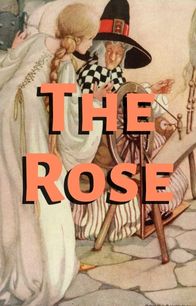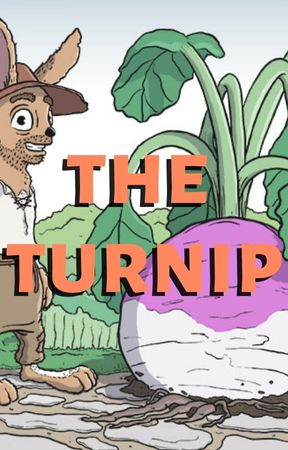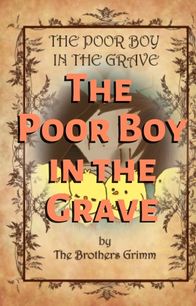There was once a poor shepherd-boy whose father and mother were dead, and he was placed by the authorities in the house of a rich man, who was to feed him and bring him up.
The man and his wife, had however, bad hearts, and were greedy and anxious about their riches, and vexed whenever any one put a morsel of their bread in his mouth.
The poor young fellow might do what he liked, he got little to eat, but only so many blows the more.
One day he had to watch a hen and her chickens, but she ran through a quick-set hedge with them, and a hawk darted down instantly, and carried her off through the air.
The boy called, “Thief! thief! rascal!” with all the strength of his body.
But what good did that do? The hawk did not bring its prey back again.
The man heard the noise, and ran to the spot, and as soon as he saw that his hen was gone, he fell in a rage, and gave the boy such a beating that he could not stir for two days.
Then he had to take care of the chickens without the hen, but now his difficulty was greater, for one ran here and the other there.
He thought he was doing a very wise thing when he tied them all together with a string, because then the hawk would not be able to steal any of them away from him.
But he was very much mistaken.
After two days, worn out with running about and hunger, he fell asleep; the bird of prey came, and seized one of the chickens, and as the others were tied fast to it, it carried them all off together, perched itself on a tree, and devoured them.
The farmer was just coming home, and when he saw the misfortune, he got angry and beat the boy so unmercifully that he was forced to lie in bed for several days.
When he was on his legs again, the farmer said to him, “Thou art too stupid for me, I cannot make a herdsman of thee, thou must go as errand-boy.”
Then he sent him to the judge, to whom he was to carry a basketful of grapes, and he gave him a letter as well.
On the way hunger and thirst tormented the unhappy boy so violently that he ate two of the bunches of grapes.
He took the basket to the judge, but when the judge had read the letter, and counted the bunches he said, “Two clusters are wanting.”
The boy confessed quite honestly that, driven by hunger and thirst, he had devoured the two which were wanting.
The judge wrote a letter to the farmer, and asked for the same number of grapes again.
These also the boy had to take to him with a letter.
As he again was so extremely hungry and thirsty, he could not help it, and again ate two bunches.
But first he took the letter out of the basket, put it under a stone and seated himself thereon in order that the letter might not see and betray him.
The judge, however, again made him give an explanation about the missing bunches.
“Ah,” said the boy, “how have you learnt that?” The letter could not know about it, for I put it under a stone before I did it.”
The judge could not help laughing at the boy’s simplicity, and sent the man a letter wherein he cautioned him to keep the poor boy better, and not let him want for meat and drink, and also that he was to teach him what was right and what was wrong.
“I will soon show thee the difference,” said the hard man, “if thou wilt eat, thou must work, and if thou dost anything wrong, thou shalt be quite sufficiently taught by blows.”
The next day he set him a hard task.
He was to chop two bundles of straw for food for the horses, and then the man threatened: “In five hours,” said he, “I shall be back again, and if the straw is not cut to chaff by that time, I will beat thee until thou canst not move a limb.”
The farmer went with his wife, the man-servant and the girl, to the yearly fair, and left nothing behind for the boy but a small bit of bread.
The boy seated himself on the bench, and began to work with all his might.
As he got warm over it he put his little coat off and threw it on the straw.
In his terror lest he should not get done in time he kept constantly cutting, and in his haste, without noticing it, he chopped his little coat as well as the straw.
He became aware of the misfortune too late; there was no repairing it.
“Ah,” cried he, “now all is over with me! The wicked man did not threaten me for nothing; if he comes back and sees what I have done, he will kill me.
Rather than that I will take my own life.”
The boy had once heard the farmer’s wife say, “I have a pot with poison in it under my bed.”
She, however, had only said that to keep away greedy people, for there was honey in it.
The boy crept under the bed, brought out the pot, and ate all that was in it.
“I do not know,” said he, “folks say death is bitter, but it tastes very sweet to me.
It is no wonder that the farmer’s wife has so often longed for death.”
He seated himself in a little chair, and was prepared to die.
But instead of becoming weaker he felt himself strengthened by the nourishing food.
“It cannot have been poison,” thought he, “but the farmer once said there was a small bottle of poison for flies in the box in which he keeps his clothes; that, no doubt, will be the true poison, and bring death to me.”
It was, however, no poison for flies, but Hungarian wine.
The boy got out the bottle, and emptied it.
“This death tastes sweet too,” said he, but shortly after when the wine began to mount into his brain and stupefy him, he thought his end was drawing near.
“I feel that I must die,” said he, “I will go away to the churchyard, and seek a grave.”
He staggered out, reached the churchyard, and laid himself in a newly dug grave.
He lost his senses more and more.
In the neighbourhood was an inn where a wedding was being kept; when he heard the music, he fancied he was already in Paradise, until at length he lost all consciousness.
The poor boy never awoke again; the heat of the strong wine and the cold night-dew deprived him of life, and he remained in the grave in which he had laid himself.
When the farmer heard the news of the boy’s death he was terrified, and afraid of being brought to justice indeed, his distress took such a powerful hold of him that he fell fainting to the ground.
His wife, who was standing on the hearth with a pan of hot fat, ran to him to help him.
But the flames darted against the pan, the whole house caught fire, in a few hours it lay in ashes, and the rest of the years they had to live they passed in poverty and misery, tormented by the pangs of conscience.















